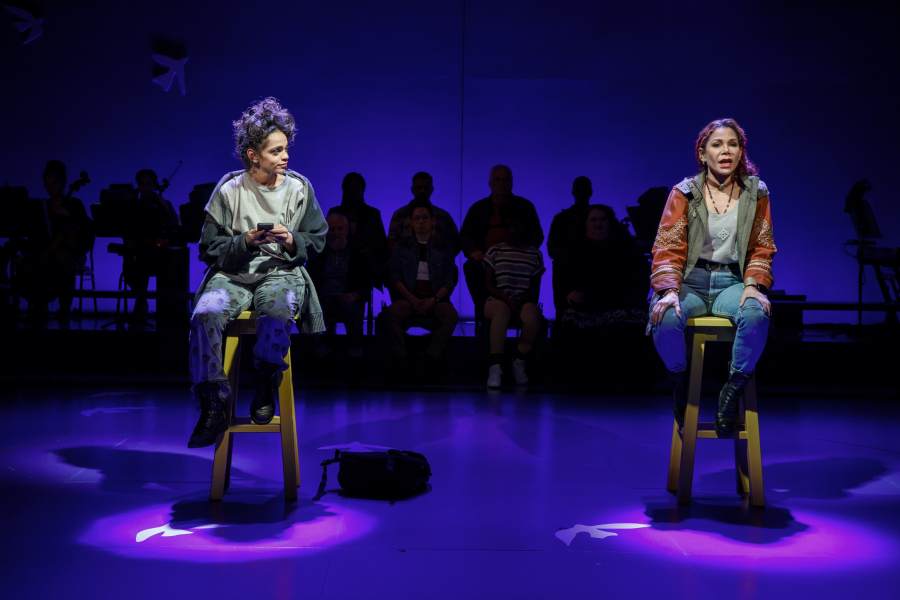

I’m aware of being Puerto Rican, being Latinx, being a woman, and how long it's taking to incorporate stories of color into mainstage seasons, which is why I'm grateful for Miss You Like Hell, a show meant to be experienced with your entire being. Miss You Like Hell follows Beatriz (Daphne Rubin-Vega) an undocumented immigrant fighting to obtain legal status, driving cross country with her estranged 16-year-old daughter Olivia (Gizel Jiménez). It has a book and lyrics by Quiara Alegría Hudes, the first Latinx woman to win the Pulitzer Prize for Drama and a Tony winner for the book of In the Heights, and music by singer-songwriter Erin McKeown. While immigration issues are front and center, Miss You Like Hell is much more than an immigration narrative. The story not only questions how things should be but celebrates Latinx idiosyncrasies and imperfect women.
Those front-seat conversations leading to Beatriz’s immigration hearing come at a turning point for them. Beatriz wants to take back her life even if the justice system forbids it. Olivia wants to reluctantly embrace the cultural contradictions that make her special. Together they debunk the myth of female inadequacy in a world that forces women to suppress their feelings because sensitivity is more often viewed as a flaw rather than an asset. Their discoveries allow them to feel pain, claim space, and have agency to make choices, whether those choices result in moral ambiguity. The show celebrates Latinx culture through Beatriz’s constant use of Spanglish, unique sayings like “sana sana colita de rana," and her connection with spirituality “Be with me, ancestors / Be with me, witchy witches / I call upon the Feminine Divine / Yo, back me up bitches!” with the insistence that they're a testament to her life and her experience, and wants them to be part of Olivia’s too.
The show also examines a deeper idea that makes this show fascinating ー the tightrope between cultures when the person fostering that connection is long-lost. How can one reclaim it or accept that there are gray areas as women? How are our relationships with women like Beatriz and Olivia, when they're deemed inadequate? Beatriz and Olivia exemplify how being authentic women can be messy at times. We are complicated, we embrace contradictions as culture shifts and so do we and that’s okay.
For many people outside marginalized communities, it’s inevitable to not engage in a call and response that comes with the heavy politicized language that’s loaded with trauma. As the show progresses, it makes a plea to not ponder from a distance. No matter the political climate, time, and place we're not the sum of our traumas, and we're capable of feeling beyond the projections of others. We share a particular stretch of the world, and this musical shows us how much deeper we can share, feel and understand our perfectly imperfect selves and our experiences. So the next time a friend suggests not seeing this musical because the story doesn’t sit quite right with them, suggest that there’s something revelatory to encounter in it. The souls you meet are not merely strangers but your neighbors.
Miss You Like Hell is at the Public Theater until May 13.